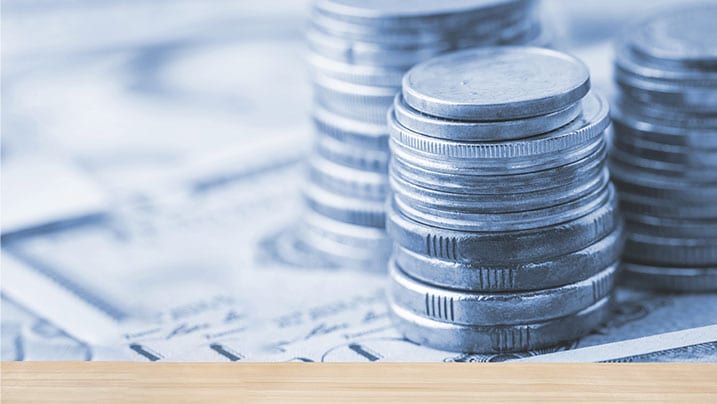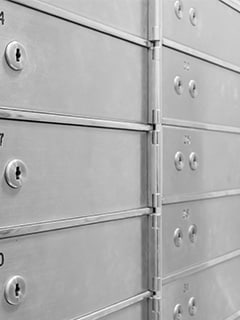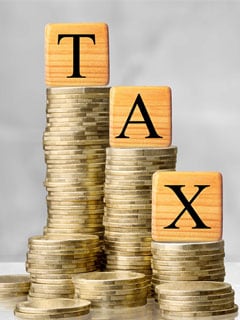CKYC Registry
-
Customer Service Contact us Service request Locate a branch
Find all the help you need
Scan the QR, get our app, and find help on your fingertips

Help CenterSupport topics, Contact us, FAQs and more
-
Login
Are you ready for an upgrade?
Login to the new experience with best features and services
-
Login
Are you ready for an upgrade?
Login to the new experience with best features and services
- Accounts
-
Deposits
IDFC FIRST Bank Deposits
View all Deposits -
Loans
IDFC FIRST Bank Loans
View all Loans - Wealth & Insure
-
Payments
IDFC FIRST Bank Payments
View all Payments -
Cards
IDFC FIRST Bank Cards
View all Cards - Blogs
- Corporate Account
-
Cash Management Services
IDFC FIRST Bank Cash Management Services
View all Cash Management Services - Supply Chain Finance
-
Corporate Lending
IDFC FIRST Bank Lending
View all -
Treasury
IDFC FIRST Bank Treasury
See more details - NBFC Financing
Support topics, Contact us, FAQs and more
- IDFC FIRST Bank Accounts
-
Savings Account
-
Corporate Salary
Account -
Senior Citizens
Savings Account -
First Power
Account -
Current Account
-
NRI Savings
Account -
TASC Institutional
Account -
Savings Account
Interest Calculator
- IDFC FIRST Bank Deposits
-
Fixed Deposit
-
Recurring Deposit
-
NRI Fixed Deposit
-
Safe Deposit Locker
-
FD Calculator
-
RD Calculator
- IDFC FIRST Bank Loans
-
Personal Loan
-
Consumer Durable
Loan -
Home Loan
-
Business Loan
-
Professional Loan
-
Education Loan
-
New Car Loan
-
Pre-owned Car Loan
-
Two Wheeler Loan
-
Pre-owned Two
Wheeler Loan -
Commercial Vehicle
Loan -
Gold Loan
-
Loan Against Property
-
Loan Against Securities
-
Easy Buy EMI card
-
Personal Loan
EMI Calculator -
Education Loan
EMI Calculator -
Home Loan
EMI Calculator
- IDFC FIRST Bank Wealth & Insure
-
FIRST Select
-
FIRST Wealth
-
FIRST Private
-
Mutual Funds
-
Sovereign Gold Bond
-
Demat Account
-
Term Insurance
-
Life Insurance
-
Health Insurance
-
General Insurance
-
Bonds
-
Loan Against
Securities -
Portfolio Management
Service
- IDFC FIRST Bank Payments
-
FASTag
-
Credit Card
Bill Payments -
UPI
-
Funds Transfer
-
Forex Services
-
Pay Loan EMI
- IDFC FIRST Bank Cards
-
Ashva :
Metal Credit Card -
Mayura :
Metal Credit Card -
FIRST Millennia
Credit Card -
FIRST Classic
Credit Card -
FIRST Select
Credit Card -
FIRST Wealth
Credit Card -
FIRST WOW!
Credit Card -
Deals
-
Debit Cards
-
Co-branded Cards
-
Credit Card
EMI Calculator -
FIRST Corporate
Credit Card -
FIRST Purchase
Credit Card -
FIRST Business
Credit Card
- Premium Metal Credit Cards
-
AshvaLifestyle1% Forex₹2,999
-
MayuraLifestyleZero Forex₹5,999
-
FIRST PrivateInvite Only
- Best for travellers
-
MayuraZero ForexMetal₹5,999
-
Ashva1% ForexMetal₹2,999
-
FIRST WOW!Zero ForexTravelLifetime Free
-
FIRST SWYPTravel OffersEMI₹499
-
FIRST Select1.99% ForexLifestyleLifetime Free
-
FIRST Wealth1.5% ForexLifestyleLifetime Free
-
Club VistaraTravelLifestyle₹4,999
-
IndiGo IDFC FIRST Dual Credit CardTravelLifestyle₹4,999
- Max benefits, Free for life
-
FIRST Classic10X RewardsShoppingNever Expiring Rewards
-
FIRST Millennia10X RewardsShoppingNever Expiring Rewards
-
FIRST Select10X RewardsLifestyle1.99% Forex
-
FIRST Wealth10X RewardsLifestyle1.5% Forex
-
FIRST WOW!RewardsTravelZero Forex
-
LIC ClassicRewardsInsuranceShopping
-
LIC SelectRewardsInsuranceShopping
- Reward Multipliers
-
AshvaLifestyleMetal₹2,999
-
MayuraLifestyleZero Forex₹5,999
-
FIRST ClassicNever Expiring RewardsShoppingLifetime Free
-
FIRST MillenniaNever Expiring RewardsShoppingLifetime Free
-
FIRST SelectNever Expiring RewardsLifestyleLifetime Free
-
FIRST WealthNever Expiring RewardsLifestyleLifetime Free
- Rewards & Credit on UPI
-
FIRST Power+FuelUPI₹499
-
FIRST PowerFuelUPI₹199
-
FIRST EA₹NVirtual1% Cashback₹499
-
FIRST DigitalVirtualUPI₹199
-
IndiGo IDFC FIRST Dual Credit CardUPITravelDual cards
- Fuel and Savings
-
FIRST PowerRewardsUPI₹199
-
FIRST Power+RewardsUPI₹499
-
LIC ClassicRewardsInsuranceShopping
-
LIC SelectRewardsInsuranceShopping
- Express and Flaunt
-
AshvaMetal1% Forex₹2,999
-
MayuraMetalZero Forex₹5,999
-
FIRST SWYPEMIOfferMAX₹499
-
FIRST MillenniaRewardsShoppingLifetime Free
- FD Backed rewarding Credit Cards for all
-
FIRST EA₹NVirtualCashback₹499
-
FIRST WOW!Zero ForexTravelLifetime Free
-
CreditPro Balance TransferTransfer & SaveReduce InterestPay Smartly
- IDFC FIRST Bank NRI Forex Solutions
-
Send money to India-Wire transfer
-
Send money to India-Digitally
-
Send money abroad
-
Max Returns FD (INR)
- IDFC FIRST Bank MSME Accounts
-
Platinum Current
Account -
Gold
Current Account -
Silver Plus
Current Account -
Merchant Multiplier
Account -
Agri Multiplier
Account -
TASC Institutional
Account -
Dynamic Current
Account -
World business
Account -
First Startup
Current Account
- IDFC FIRST Bank Business Loans
-
Business Loan
-
Professional Loan
-
Loan Against Property
-
Business Loan for Women
-
Working Capital Loan
-
Construction Equipment Loan
-
Machinery Loan
-
Healthcare Equipment Loan
- IDFC FIRST Bank Business Solutions
-
Payment Solutions
-
Tax Payments
-
Doorstep Banking
-
Point of Sale (POS)
-
Escrow Accounts
-
NACH
-
Payment Gateway
-
UPI
-
Virtual Accounts
-
As per amendment in the Income Tax Rules, PAN or Aadhaar are to be mandatorily quoted for cash deposit or withdrawal aggregating to Rupees twenty lakhs or more in a FY. Please update your PAN or Aadhaar. Kindly reach out to the Bank’s contact center on 1800 10 888 or visit the nearest IDFC FIRST Bank branch for further queries.
-
-
Most Searched
Sorry!
We couldn’t find ‘’ in our website
Here is what you can do :
- Try checking the spelling and search
- Search from below suggestions instead
- Widen your search & try a more generic keyword
Suggested
Get a Credit Card
Enjoy Zero Charges on All Commonly Used Savings Account Services
Open Account Now
Savings Account
Why should you consider a Recurring Deposit for future benefits?
Key Takeaways
Recurring deposits (RDs) offer several benefits, including attractive interest rates, no penalties for missed payments, and the ability to start with a minimum amount as low as ₹100.
They are ideal for short-term goals, allowing investments for periods as short as six months.
Additionally, RDs provide a disciplined saving habit and are considered one of the safest investment options. This makes them a practical choice for building a future corpus.
For many people, a Recurring Deposit (RD) has not only helped create a disciplined saving habit but has also been an ideal way to build a corpus for the future. But before you decide to open an RD (if you don't have one already), it is essential to understand some basics regarding this type of account.
What is a Recurring Deposit?
As the word 'recurring' suggests, it is an instrument for making regular monthly investments of a fixed amount for a selected tenure. The bank adds interest on the accumulated funds, which acts as an income for you. RDs are considered one of the safest investments available. The target of a recurring deposit is to mobilise your savings to earn returns on your investment, enabling you to achieve the financial goals you have set. The interest rate on RDs is usually calculated on a quarterly compounded basis or as specified by the bank.
How does an RD Account work?
Unlike a regular fixed deposit, wherein you invest a lumpsum amount at one go for a predetermined tenure, a recurring deposit account lets you invest a specified amount each month until the end of the tenure. The monthly amount generally remains unaltered during the tenure. One of the benefits of such an investment is that you can invest a sum that doesn't hamper your monthly expenditure; instead, it can help increase your future funds.
READ MORE
Benefits of a Recurring Deposit
1. Attractive interest rate
The most beneficial factor of a recurring deposit is the attractive interest rate, making it more profitable than a regular savings account. For instance, if you open an RD account with IDFC FIRST Bank, you get attractive interest rates up to 6.75%. Interest earned is paid out at the time of maturity of the account. Visit the Recurring Deposit Interest page or calculate the interest to be earned here.
2. Penalty not included
There was a time when you needed to pay penalties if you missed a monthly payment due. However, with institutions like IDFC FIRST Bank, saving with an RD account has become more investor-friendly as you do not incur a penalty for missing an instalment. There may be penalty applicable on premature withdrawal of your RD. Click here to know more.
3. Start with a feasible amount
Anybody can build savings through an RD account as the minimum amount starts at around ₹500 and varies according to different banks or institutions. IDFC FIRST Bank makes this investment a far more viable option by setting the minimum amount at ₹100 (maximum investment per month is ₹1,25,000). So you can get started with the amount you are comfortable with and you don't have to compromise on your daily expenses.
4. Choose short tenures
Like the minimum sum, you can choose a short tenure depending on your financial capacity or needs. With IDFC FIRST Bank, you can choose to open a recurring deposit account for a period as short as 6 months, making it an ideal option for short-term investments.
5. Easy documentation
If you already have a savings account, you can open an RD account with the same bank and link it to your savings account with no additional documentation needed. This makes starting an RD a hassle-free process.
6. Recommended for short-term goals
If you are someone who has or sets lots of short-term goals, such as annual holidays or upgrading your phone/gadgets every few years, an RD can be an excellent option to save for these goals.
7. Save through instalments
Most people open FDs when they receive lumpsums, such as bonuses. However, this is not something that everyone enjoys. If your income and budget leave you with a smaller amount at the end of the month, you can put these extra funds to work by starting an RD account. This way, you can put away small amounts to eventually accumulate a large sum, and your money, which would otherwise lie idle in your bank account, can earn a higher interest rate.
Recurring deposits give you a risk-free fixed income, and with IDFC FIRST Bank offering attractive rates, it makes complete sense to open an RD account today to establish a more secure financial future.
Disclaimer
The contents of this article/infographic/picture/video are meant solely for information purposes. The contents are generic in nature and for informational purposes only. It is not a substitute for specific advice in your own circumstances. The information is subject to updation, completion, revision, verification and amendment and the same may change materially. The information is not intended for distribution or use by any person in any jurisdiction where such distribution or use would be contrary to law or regulation or would subject IDFC FIRST Bank or its affiliates to any licensing or registration requirements. IDFC FIRST Bank shall not be responsible for any direct/indirect loss or liability incurred by the reader for taking any financial decisions based on the contents and information mentioned. Please consult your financial advisor before making any financial decision.
The features, benefits and offers mentioned in the article are applicable as on the day of publication of this blog and is subject to change without notice. The contents herein are also subject to other product specific terms and conditions and any third party terms and conditions, as applicable. Please refer our website www.idfcfirstbank.com for latest updates.























